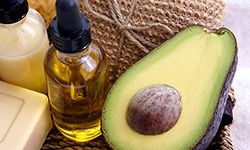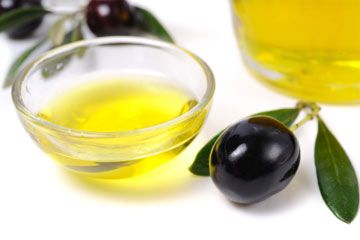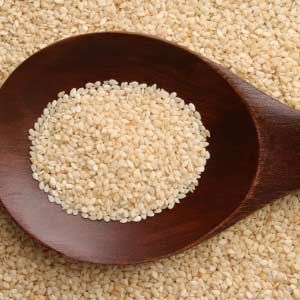Grapeseed Oil
As its name suggests, this oil comes from the seeds of pressed grapes, and it is high in antioxidants. It is beneficial for all skin types, from dry and flaky to greasy, because it helps regulate the body's natural oil production. Grapeseed oil is inexpensive and easy to find in the supermarket, and can be applied directly to the skin (just a few drops at a time) to even out skin tone and help prevent signs of aging. [Source: Van Damme]
Argan Oil
This very pricey oil contains high levels of vitamin E and anti-inflammatory fatty acids, and because its antioxidants won't break down in sunlight the way others will, this is a good choice to wear during the day. Made from kernels in the nuts of argan fruit, it can take close to an hour to make enough oil to create a small bottle. Though it's been popular in Morocco for hundreds of years, it's now gaining worldwide attention. Proponents of argan oil, including the supermodel-turned-skin-care-entrepreneur Josie Maran, say that argan oil can be used to fight everything from dry, flaky skin to acne. A small 2-ounce bottle of argan oil should run you close to $50 (although you only have to use a few drops at a time); anything less expensive is likely filled with additives that will make it less effective. [Source: Davis]
Peppermint Oil
You may feel warmth and tingling on your skin when you apply a product that contains peppermint oil; this comes from its natural astringent properties, which help clear out clogged pores and control the skin's natural oil production. (Because of this, it can be helpful for people with both dry and oily skin.) Peppermint oil, like all essential oils, is very potent by itself, and it can irritate the skin if applied directly. Instead, add a few drops to a "carrier oil" like olive or sweet almond oil, place a few drops in your bath or look for commercial products that already contain a blend. [Source: Mae]
Carrot Seed Oil
Carrots are also high in antioxidants, especially the powerful cancer-fighter beta-carotene. That's also true of the seeds of the wild carrot plant (also known as Queen Anne's Lace), which are pressed to create this common skin-care ingredient. Carrot seed oil may help reduce inflammation in dry, irritated skin, and can even help fight off precancerous skin lesions on skin exposed to too much sun. [Source: Annemariegianni.com] Because of this, carrot seed oil is often added to sunscreen as well as to anti-aging creams and serums.
Olive Oil
This kitchen staple also has a place in skin-care, although it should be saved for people with very dry skin, says Miami-based dermatologist Leslie Baumann, MD in a interview with Totalbeauty.com. [Source: Davis] Olive oil is moisturizing, full of nutrients and fatty acids, and may even protect against skin cancer, according to one Japanese study done on mice. [Source: Budiyanto et al.] Consider slathering olive oil on dry hands and feet before bed (put on gloves and socks to protect your sheets), or adding a few tablespoons to your bath water. Look for the term "first cold press" on the bottle, which means that the oil hasn't been exposed to high temperatures that can destroy or alter its antioxidant content.


